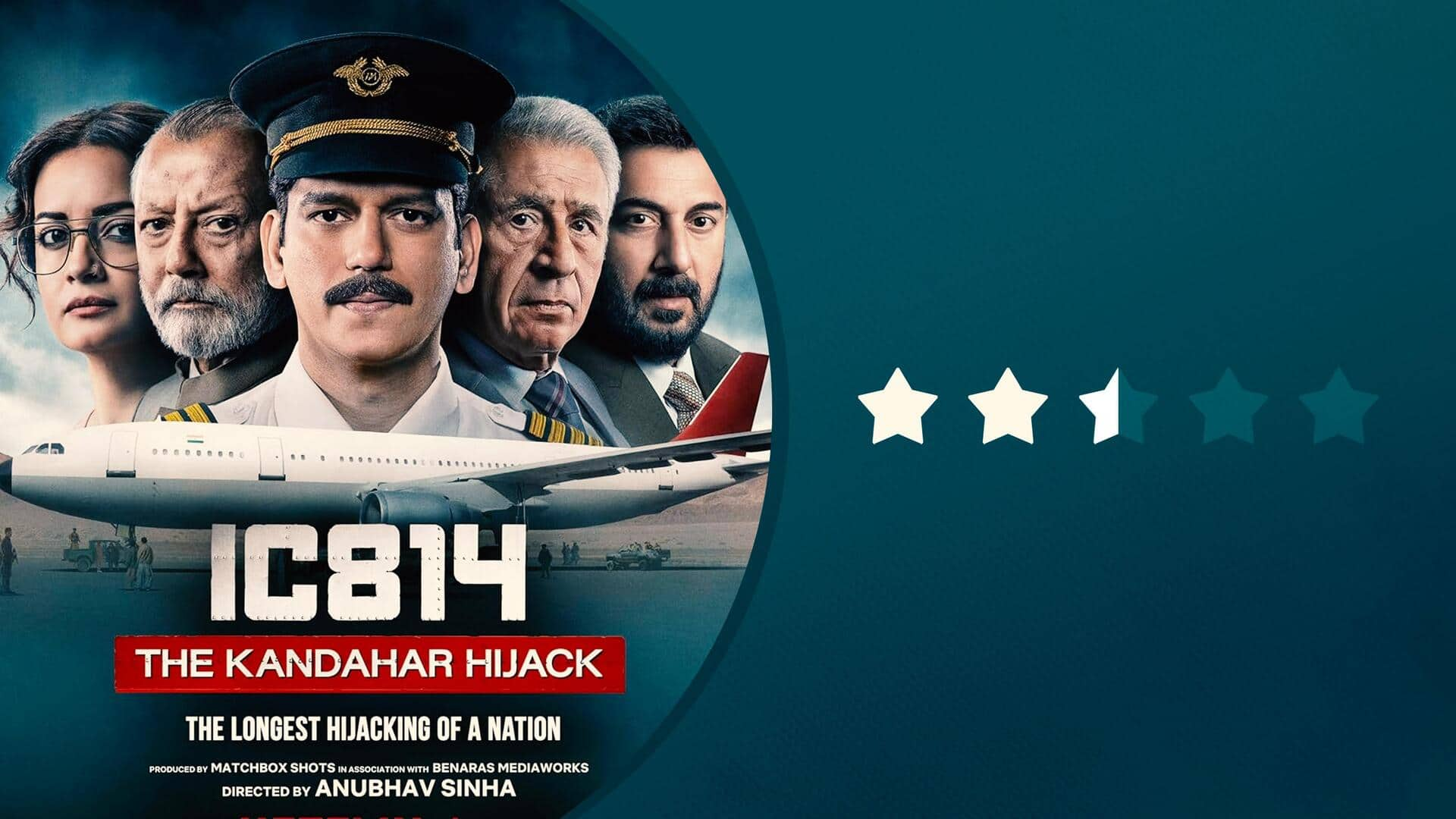
'IC 814' review: Excellent actors can't rescue this turbulent ride
What's the story
Pankaj Kapur, Vijay Varma, Kumud Mishra, Naseeruddin Shah, and more—when I saw the casting coup Netflix pulled off with IC 814: The Kandahar Hijack, I wondered what could go wrong. Alas, the six-episode-long miniseries answered my question from the first episode. Despite Anubhav Sinha's sprawling directorial experience, the show is more a miss than a hit. Well-performed and focused, but also stretched and overlong.
Story
The show is based on a tragic true story
The show, inspired by Captain Devi Sharan's book Flight into Fear-A Captain's Story narrates the story of "the longest hijack in the history of aviation," when five terrorists hijacked a Kathmanu-Delhi flight. It lasted seven days, and the hijackers demanded the release of terrorists Maulana Masood Azhar, Ahmed Omar Saeed Sheikh, and Mushtaq Ahmed Zargar. The Indian government finally relented.
#1
Despite a true story, the show is inconsistent
When a story is about a hijack or the high stakes of survival, you expect to be gripped from the word go. However, despite a story so pregnant with possibilities, Sinha fails to fully mine its potential, failing to make it slick, sharp, and engaging. There are some curious factors at display here: scenes aren't needless, and yet, they fail to draw you in.
#2
Things come and go, struggle to be impactful
"Brace for impact!" We hear this several times, so then, it's quite ironic that most of the show is so stunted and diluted that there's no....impact. There's a surprising idiosyncrasy at play, sometimes the show is in a hurry to reach the next aspect, and sometimes, it feels too slow, too stretched out, too long. It would have better served as a three-episode-long documentary.
#3
It moves at an uneven pace
To elaborate, things are too fast-paced for their own good in the pilot episode and I wish they had slowed down a bit for the viewers' better understanding. It also seems that the series is not sure when to dramatize events and when to show footage from real-life proceedings. At times, this creates a jarring, grating effect, eventually making the show lackluster.
#4
Too much happens, but we're hardly satisfied
Speaking of grating effects, the series lacks a connective tissue, and scenes pop out anywhere, anytime, without the semblance of cohesion. Take, for instance, a scene where the hijackers awkwardly play antakshari with the hostages—the sequence is born out of nowhere, and if the show is trying to say something about Stockholm Syndrome, it's completely lost in the execution. Too many loose threads.
#5
One more instance of journalists being written as cardboard characters
Dia Mirza and Amrita Puri (as journalists), don't have much to do to drive the narrative (There's something to be said about the select numbers of female actors here). Their track is so cliché, and so painted in predictability, that it again makes you wonder if there's a secret manual that Bollywood filmmakers go by when it comes to the presentation of Indian media.
#6
Positives: Another brilliant performance by Varma
Coming to what works, I cannot stop watching Varma, who plays Sharan. He can play a cop, an obsessive husband, or a serial killer—he has the rare skill of making each character his own. How's that for a modern-day Midas touch? His character is bound to the seat for most of the show, but when has that ever been a restraint for his talent?
#7
Cannot get enough of the ensemble cast
While the show discernably struggles to strike the right note between action and drama, it's much better when we get a closer look at RAW, IB officials, and the government. These officers, played by Manoj Pahwa, Mishra, and Aditya Srivastava, among others, lend much-needed gravitas to the show and bring alive the vulnerabilities and the pressure the actual officers must have gone through.
#8
The show is unafraid to point out India's flaws
The most striking aspect is how IC 814 doesn't mince its words when it comes to the Indian government's failure to prevent this attack. "Zero intelligence, zero warnings," says a character at one point, and Sinha pulls no punches while highlighting how the Indian Intelligence system should have been better equipped to handle this nightmare. Also, come for Kapur-Shah-Varma, but stay for Rajiv Thakur!
#9
The world of diplomacy is harder than we think
The show is a deep insight into how two wars were being fought at the same time: one in the air and one on the ground, and how the Indian government was crushed between the devil and the deep blue sea. They cannot let terrorists go free, but they can't let hostages die either. It's a close analysis of the turbulent world of diplomacy.
Verdict
If you want, watch it only for the actors; 2.5/5
Projects based on real-life stories must always implore you to read more about the event—either because your thirst can't be satiated, or because the project left you none the wiser. In this case, I am intrigued to read Sharma's book for the latter reason. IC 814 could have been goosebump-inducing, but alas, as the situation stands, it only partly works due to its ensemble.